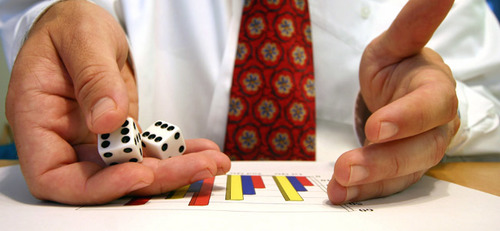Bob and Dice
Probability
Level
4
 Bob, who is known to lie 3 out of 4 times, rolls a fair dice and says it is 6. What is the probability that the dice actually shows number 6 ??
Bob, who is known to lie 3 out of 4 times, rolls a fair dice and says it is 6. What is the probability that the dice actually shows number 6 ??
The answer is 0.25.
This section requires Javascript.
You are seeing this because something didn't load right. We suggest you, (a) try
refreshing the page, (b) enabling javascript if it is disabled on your browser and,
finally, (c)
loading the
non-javascript version of this page
. We're sorry about the hassle.
Case 1: Bob gets a 6 and does not lie
The probability of getting a 6 is 6 1 , and the probability of Bob not lying is 4 1 . So the total probability is 6 1 ∗ 4 1 = 2 4 1 .
Case 2: Bob doesn't get a 6 and lies
The probability of not getting a 6 is 6 5 , and the probability of Bob lying is 4 3 . We also have to multiply by 5 1 because Bob won't always say 6 when lying. So the total probability is 6 5 ∗ 4 3 ∗ 5 1 = 2 4 3 .
By Bayes theorem, 2 4 1 + 2 4 3 2 4 1 = 4 1 = 0 . 2 5